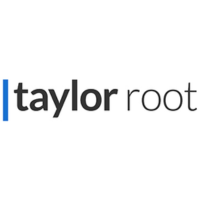
General counsel and co-company secretary | NTT



Sean Greenland
General counsel and co-company secretary | NTT
Team size: Ten
What has been the number one challenge that has impacted you over the past year?
Time management. Having two children under the age of three, completing a graduate diploma in corporate governance, commencing a new role as co-company secretary and still being relatively new as general counsel (only two years) has placed some time pressures on me. As a hands-on father, and with a partner who also works full time, I have had to delicately balance the time pressures of the role and the want to spend as much time with my children and partner as possible.
To overcome this challenge, I had to work flexibly and in a hybrid way. This had a positive effect on our team culture; my team often comment that it is great to see me prioritising family and encouraging a hybrid environment. Leading by example in that regard empowers the team to do the same.
Looking forward, what technological advancements do you feel will impact the role of in-house legal teams in the future the most?
The way we work: Inflationary pressures and general uncertainty will continue to place cost pressures on in-house legal teams. Being asked to do more with less means that matter management and smart contracts becomes increasingly important and relevant. The ability to engage with internal clients, triage matters and shorten lead and completion times are important ways to counter these effects and minimise workload.
Impact on in-house legal teams: AI. Governments around the world are trying to grapple with the impact of AI. Undoubtedly there are great benefits in automation but there are social and ethical challenges which come with it (and you would imagine future legal requirements) – for example, AI tools which discriminate based on nationality, social, economic or gender.
This will mean that legal teams must be more involved in the development stages of new products, technology and services and be more involved with the delivery teams to provide advice on those ethical and legal concerns.
What would you say are the unique qualities required to be successful as an in-house lawyer in your industry?
Interpersonal skills: Ability to engage and influence internal stakeholders and external clients is incredibly important. Being amazing at the law will only take you so far – being engaging, persuading, and influencing a course of action will have more of an impact than a well written piece of advice.
No ego: No one wants your beautifully drafted pieces of advice with detailed case law. It is less about you and more about what you can do for the business and to help your team and leaders achieve their objectives as quickly as possible whilst minimising the noise. Shorten advice, focus on what is important and be clear on what course you think someone should take.
Commercial: Winning new business can be challenging in our fast-paced industry, as service providers are often judged based on their ability to contract easily and quickly. Having an ability to resolve issues commercially and think outside the box is important to increase speed to contract.